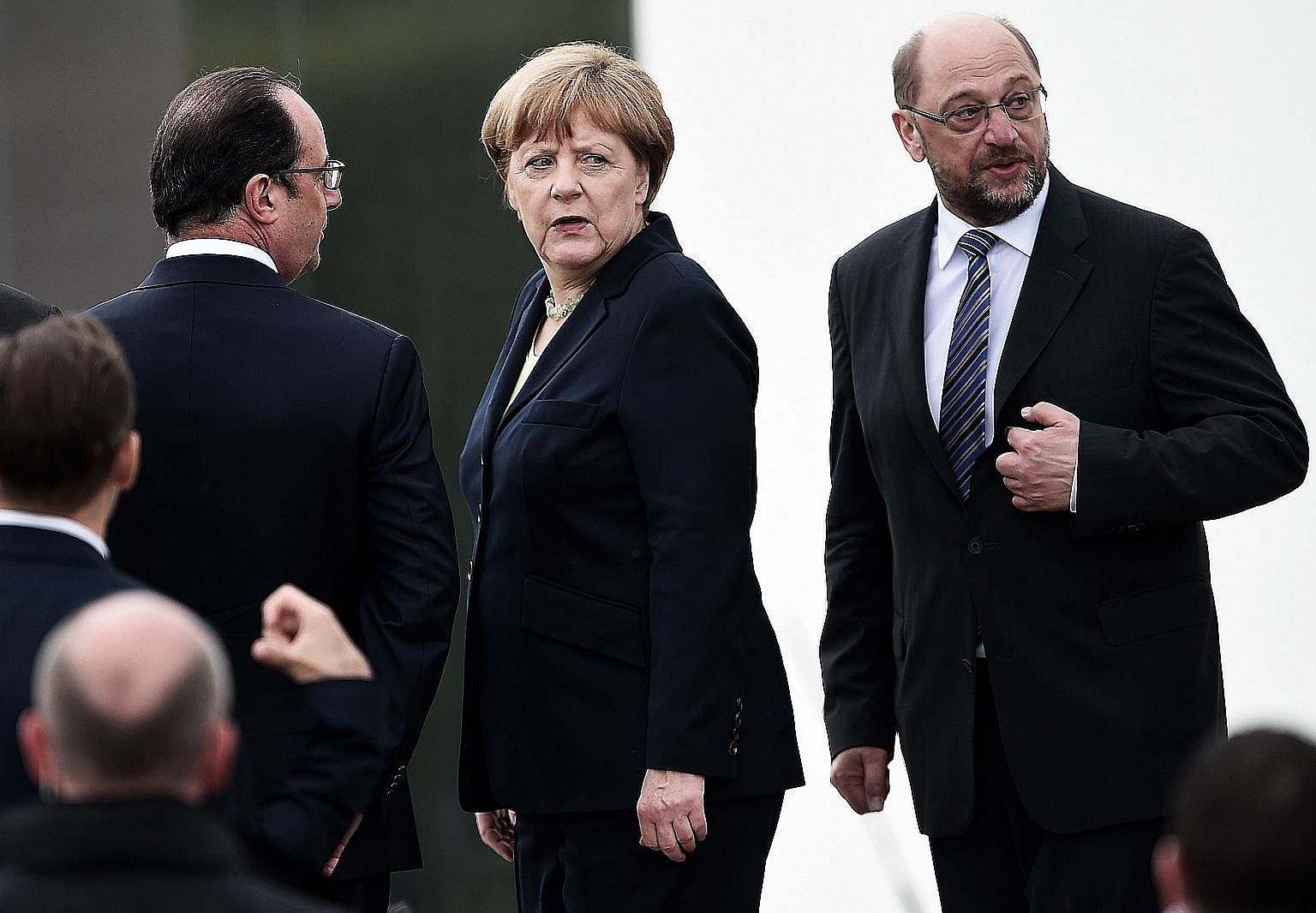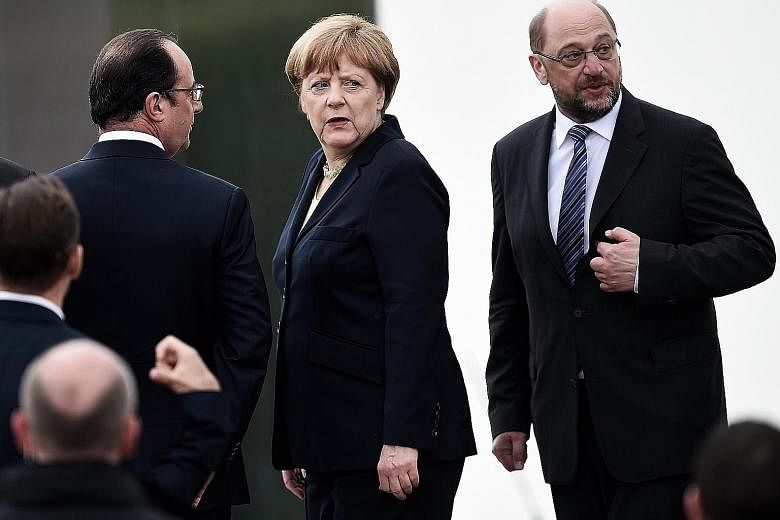With barely two months to go before a general election in Germany, Chancellor Angela Merkel has brushed aside demands from a senior minister in her coalition government to quit over street violence in Hamburg during the Group of 20 (G-20) summit of the world's top economies.
With the electoral campaign reaching fever pitch, tensions are rising inside the ruling coalition between Dr Merkel's centre-right Christian Democrats (CDU) and the centre-left Social Democrats (SPD), who hope to put an end to her 12-year rule in September's election. Also, unusual for German politics, the attacks between rival politicians are getting personal.
Following a number of terrorist attacks, security on Germany's streets is a sensitive electoral topic, and the unprecedented images of wanton street destruction in Hamburg are potentially damaging for Dr Merkel. Her predicament is made worse by her persistent failure to explain why the violence was not foreseen in a city that has a history of militant politics, or why a 20,000-strong police force proved inadequate in handling an estimated 1,500 violent demonstrators.
Although Hamburg is controlled by the SPD, her major electoral opponent, Dr Merkel initially tried to steer the security debate away from party politics. "The people who are responsible are a group of hooligans", said Mr Peter Altmaier, the Chancellor's chief of staff, earlier this week.
That suited the SPD as well. Mr Martin Schulz, the party's leader and a candidate for the post of Chancellor, joined Dr Merkel in dismissing the rioters as a fringe minority: "They cannot claim any political legitimacy whatsoever," he told an election rally.
But with the finger-pointing debate continuing in the German media, Foreign Minister Sigmar Gabriel has now broken ranks with his fellow SPD members by accusing Dr Merkel's CDU of engaging in "an unprecedented amount of dishonesty" over responsibility for the Hamburg violence, and has suggested that the Chancellor should resign.
With all current opinion polls indicating that the CDU is slated to win 40 per cent of the votes, against 24 per cent for the SPD, in the Sept 24 election, Mr Gabriel's outburst looks unlikely to dent Dr Merkel's re-election prospects.

Still, the episode points to a considerable hardening of the usually polite German electoral atmosphere. And it also acts as a reminder to politicians that law-and-order matters are now a key topic for voters.
Dr Merkel considered it prudent to include in her recently published electoral manifesto a pledge to hire an additional 15,000 police officers should she win a fourth term at the helm of government.
And in a country still haunted by its Nazi past and where politicians usually downplay any overt displays of nationalism, she broke with precedent by prominently using Germany's national colours on her electoral posters. "Our campaign will be a bit more patriotic than before," admitted Mr Peter Tauber, the CDU's secretary-general.
This does not mean that the Chancellor is toying with playing the nationalist card. Dr Merkel remains proud of her decision to keep Germany's borders open to immigration, and rejects a narrow definition of nationalism.
In a recent article for the national media in which she outlined her creed, she cited Muslims and other immigrants as people who "define what it means to be German".
Nevertheless, her decision to cast the campaign in more national terms is shrewd, for it aims to check the advance of the Alternative for Germany (AfD) - a far-right, anti-immigrant movement that only a few months ago inflicted heavy losses on the CDU in regional elections, and seemed poised to storm the federal political scene.
Dr Merkel's tactic for making sure that national symbols such as the flag don't end up being monopolised by far right-wingers appears to be working as intended. The AfD is down in all opinion polls from around 14 per cent of the vote to not more than 6.5 per cent - just enough to get it into Germany's next Parliament, but not enough to upend politics or Dr Merkel's prospects of forming a ruling coalition.
And with the economy doing well and her personal popularity ratings far above those of Mr Schulz, Dr Merkel knows that, as shocked as Germans might be about the recent violence in Hamburg, what voters prize most is her offer of continuity and predictability, with no radical experiments.
"For a Germany in which we live well and happily," say her party's electoral posters. A cheesy slogan, perhaps. But evidently a vote-winner.


